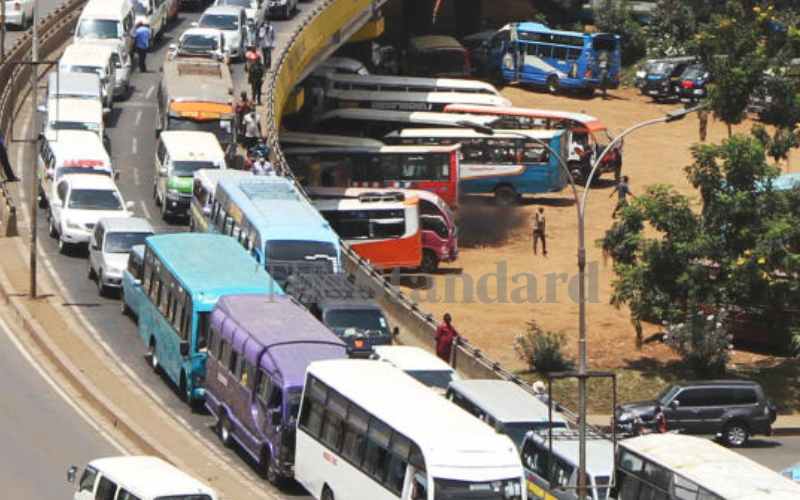×
The Standard e-Paper
Smart Minds Choose Us

Traffic snarl-up at the Globe roundabout flyover along Thika superhighway in Ngara. October 9, 2020. [Elvis Ogina, Standard]
A video of a boda boda passenger nonchalantly grabbing a traffic police officer’s phone at a roundabout on Thika Road was a horrifying reminder of how unsafe Nairobi and its environs have become.